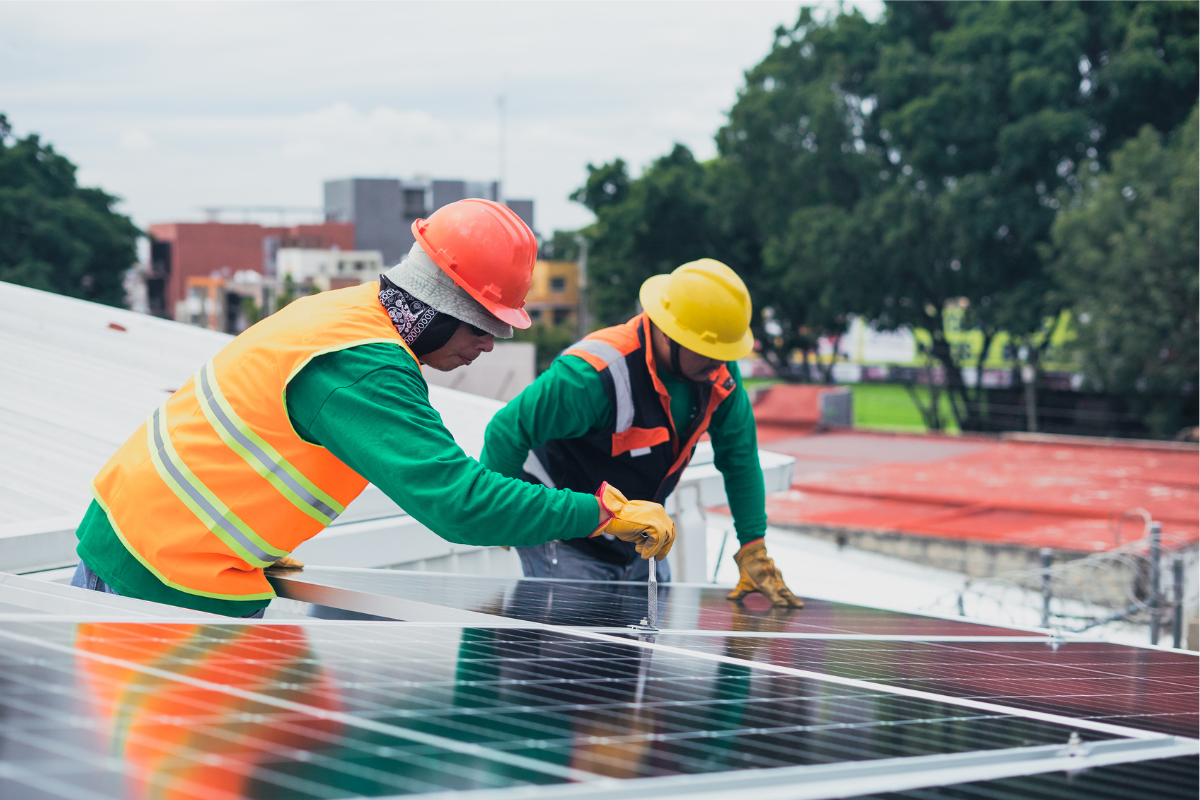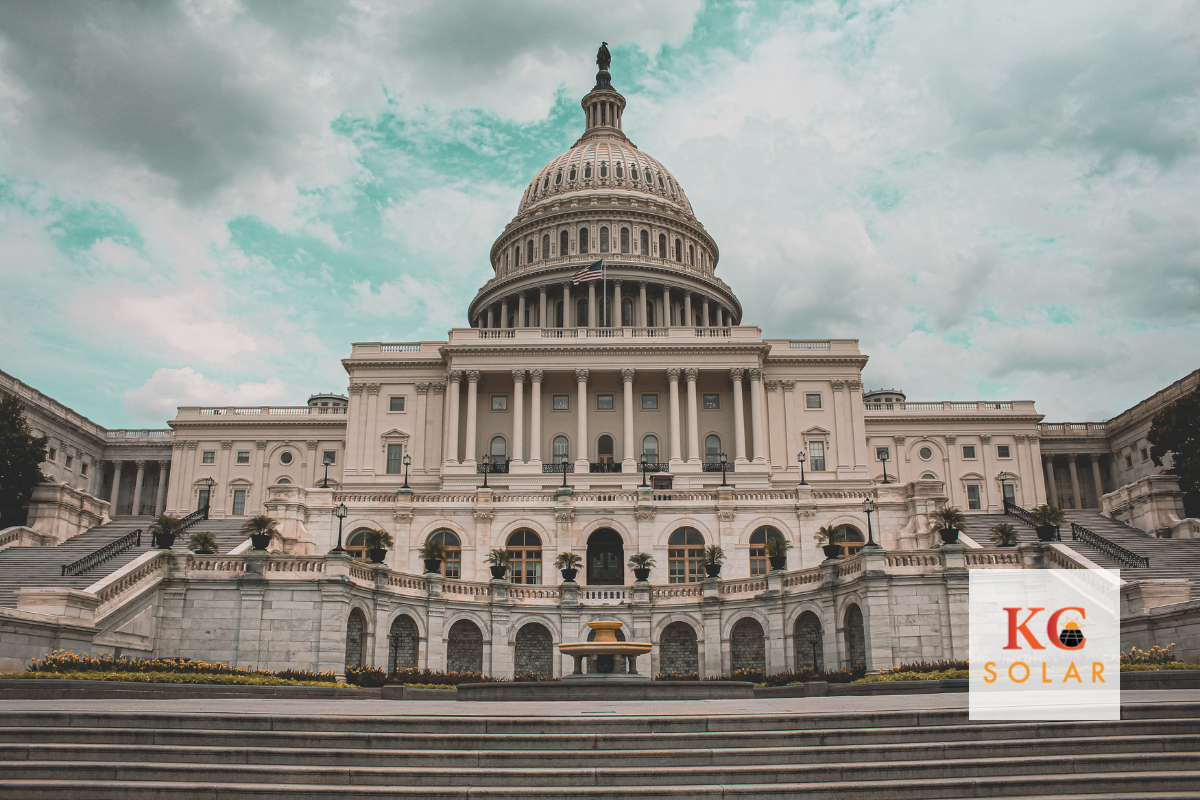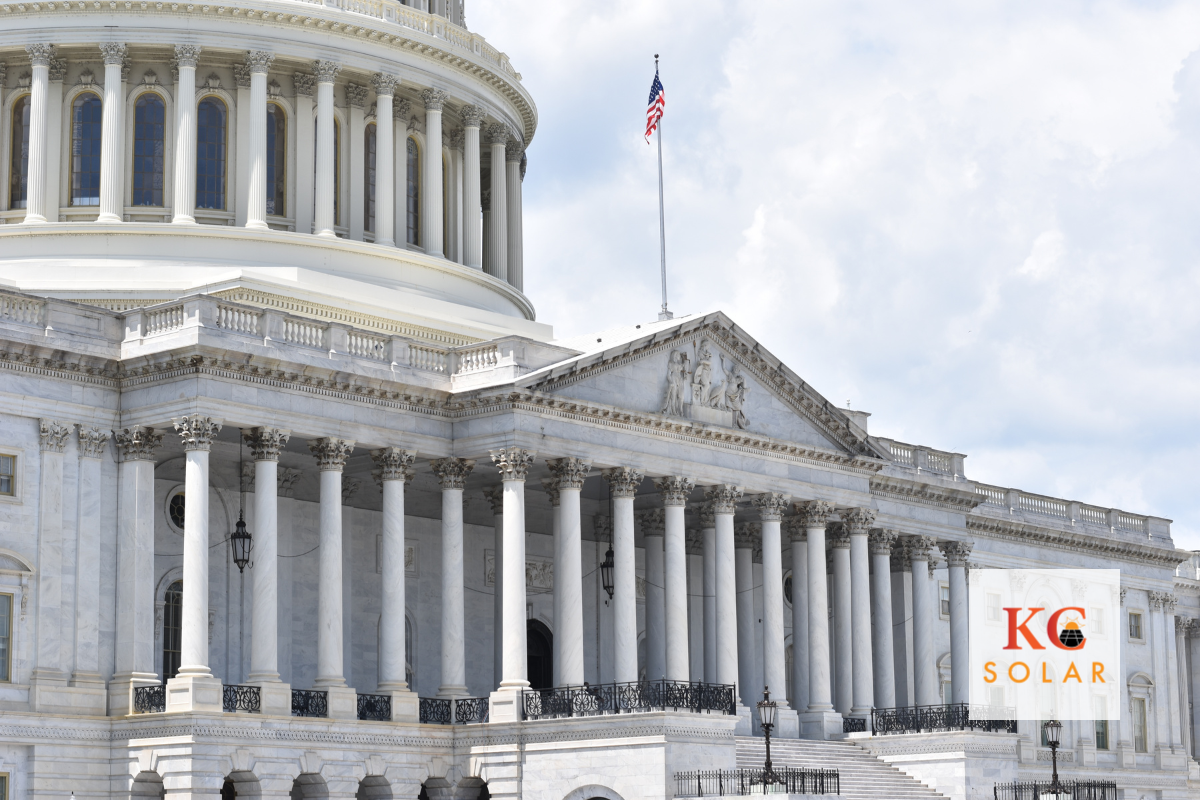If you’re a business owner or commercial property owner, you may be curious about making the switch to solar for your business. However, it seems like most of the information you can find about solar panels is targeted toward residential customers, which can make it confusing. And the truth is that residential solar panel and commercial solar panel installation projects can be quite different.
Even if you already have solar panels at your home, the process for a commercial installation may surprise you. Keep reading to learn about some of the differences between commercial solar panels and residential solar panel installation.
System Efficiency
Every solar panel customer — whether residential or commercial — wants to have the most efficient system possible. While typical residential solar panels clock in at about 20% efficiency, commercial panels are typically closer to 22% efficiency. That’s because, with larger projects and a higher budget, businesses are able to pay for the highest efficiency panels available.
A note on efficiency: Having 22% efficiency means that 22% of the light that hits the solar panel is able to be converted to energy. According to EnergySage, “The standard for efficiency is only rising with the emergence of new technologies and manufacturing capabilities.”
Size of Panels and Scope of Project
Just as many commercial buildings are larger than the average home, the solar panels used in commercial installations are larger than the ones used for residential projects.
Typically, there are two sizes of solar panels available: 60-cell solar panels and 72-cell solar panels. The 60-cell panels are about 5.4 feet tall by 3.25 feet wide and have an output of about 270 to 300 watts. On the other hand, 72-cell solar panels are larger because they have an extra row of cells. Their average output is somewhere between 350 to 400 watts.
Those 72-cell panels are usually used on larger buildings and in commercial solar projects, rather than on residential homes.
Time Needed for Commercial Solar Panel Installation
With all those larger panels — and usually more area to cover, along with higher energy needs — it’s no surprise that it can take much longer to install solar panels when working on a commercial project.
While a residential installation project can often be completed in just a few days, a commercial project can take a month or more.
Regardless of whether you’re installing a residential or commercial solar system, there are a few factors that can impact the amount of time it takes:
- Your solar installation company
- Local permitting and inspection processes
- Size and type of solar panel system
- Property characteristics
- Utility company and interconnection
Interestingly, though it usually takes much longer to install solar panels for commercial projects, the process can actually be easier and safer for the installation technicians. That’s because a business’s roof is more likely to be flat than a residential home.
Aesthetic Design
When installing solar panels, one major concern of many homeowners is the aesthetic appeal of those solar panels. No matter how much they want to experience the benefits of a solar system, it can be hard to stomach if you think it’s going to turn your beautiful home into the ugly duckling on the block.
In fact, residential solar customers may go to great lengths to disguise their solar panels — such as with SolarSkins — or by choosing black panels, which can blend in with dark roofing shingles more easily.
And at KC Solar, we use monocrystalline, all-black panels with all-black frames for a consistent look. You won’t find silver frames or multiple shades of blue on our systems. We want you to be completely satisfied with your solar power system – from both an aesthetic and efficiency standpoint.
However, commercial properties may be less particular about the color of their solar system. You may see solar panels of all colors — white or silver frames with black panels, or even the blue color that many residential customers do not prefer.
Community Impact
Whether you’re looking at commercial solar panels or residential solar panel installation, you have the opportunity to make an impact on your local community. That’s because you’re more than just investing in your property, business, employees, and customers. You’re also investing in your own local community when you choose a local company to help you with your solar project.
When you choose a local solar company, you’re ensuring that your money stays within your community. Which makes the local economy even stronger. And it’s likely that your local solar company is sourcing their materials from other local companies — meaning you’re making an impact in more ways than one.
But there are a few benefits in this area that are more unique to a commercial project. Of course, a residential solar project can help the homeowners save money. But a commercial solar project can provide more jobs, help meet clean energy targets, and cut down electricity costs — which could mean more money in the budget to pay employees a fair wage. It’s also a great way to improve your company’s image in the local community.
By working with your hometown solar team, you’re showing you care about the power of community and trust in your local talent to get the job done.
Start Your Switch To Solar Today
If you are looking for the best solar company in Kansas City, look no further than KC Solar. Whether you’re looking for a residential or commercial solar system, we are your local Kansas City solar panel installation experts.
Once you schedule a no-pressure site visit, our experts will help you understand what solar system specifications would be best for your home or business. We can also help you understand all your options, including the Evergy Solar Program.
KC Solar is the only local solar company in Kansas City with KC natives who own and operate the daily activities of the business. We are your Kansas City Solar Panel experts. And solar panel installation in Kansas City is our passion.
And be sure to download our Free Solar Panel Buying Guide for more information.





